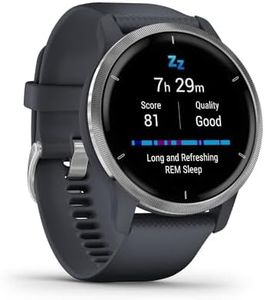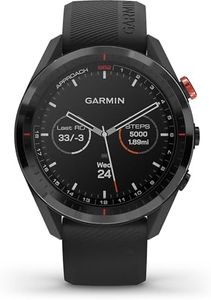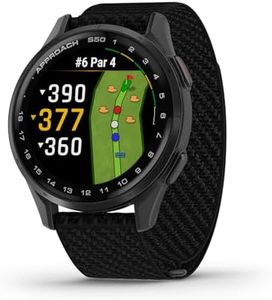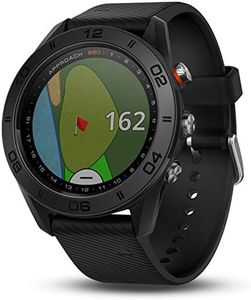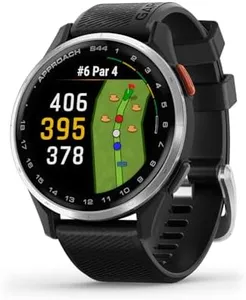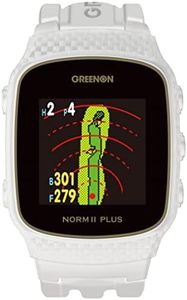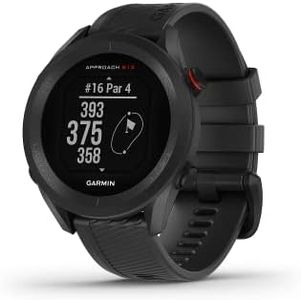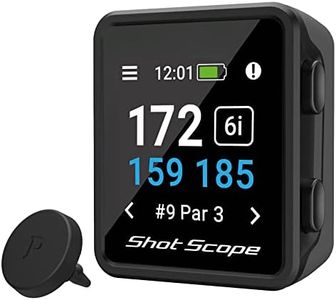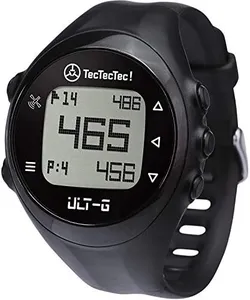We Use CookiesWe use cookies to enhance the security, performance,
functionality and for analytical and promotional activities. By continuing to browse this site you
are agreeing to our privacy policy
10 Best Golf Watches
From leading brands and best sellers available on the web.By clicking on a link to a third party's website, log data is shared with that third party.
Buying Guide for the Best Golf Watches
Choosing the right golf watch can greatly improve your golfing experience, helping you track performance, navigate the course, and manage your game more effectively. When shopping for a golf watch, it's important to understand which features truly matter to you based on your game style and habits. Focus on key specifications that affect usability, accuracy, and the level of golf-specific support offered by the device. Consider how often you play, what data you'd like to track, and how much you value smart features versus traditional golf assistance.Course Mapping and CoverageCourse mapping refers to the pre-loaded information on the watch about golf courses—such as hole layouts, hazards, and distances to the green. The more courses included, the more versatile your watch will be, especially if you play at different locations. This feature is crucial for accurate measurements and hazard warnings. When evaluating course coverage, look for watches that support courses you visit regularly and that offer free or easy updates. If you travel often or play at different clubs, broad worldwide coverage is ideal; if you mostly play locally, focus on watches rich in detail for your area.
GPS AccuracyGPS accuracy measures how precisely the watch can tell your location on the golf course. This affects distance readings to holes, hazards, and layups, impacting your shot decisions. GPS accuracy can range from basic (approximate distances) to highly refined (precise to a few meters or less). For casual players, mid-level accuracy is usually sufficient, but more advanced or competitive golfers will benefit from higher accuracy for confidence in their club choice and shots.
Battery LifeBattery life is how long your watch can run on a single charge while using its golf features. This is important because GPS usage can drain the battery quickly. Battery life varies from just one round (a few hours) to multiple rounds or even days. Think about how long your rounds last and how often you want to charge your device. Frequent, long rounds require a watch with extended battery life, while occasional or short rounds can make do with less.
Display Quality and ReadabilityThe display quality involves screen size, brightness, and clarity. Golf watches often face bright outdoor conditions, so a clear, sunlight-readable display is important for quick glances during play. Smaller displays are lighter and less obtrusive but may show less information, while larger ones are easier to read but bulkier. Pick a display type and size that fits your vision needs and comfort on the wrist.
Golf-Specific FeaturesThese are extra tools such as shot tracking, scorekeeping, hazard distances, green shape views, and swing analysis. They help you analyze your game and get the most from each round. If you like digging into statistics and improving over time, choose a watch with deeper tracking features. If you prefer a straightforward tool for distances and navigation, basic golf features will be enough.
Water ResistanceGolf is played outdoors, often in changing weather conditions. Water resistance measures how well the watch can handle rain, dew, or accidental splashes. Some watches can even survive brief submersion, while others are only splash-proof. If you play in varied climates or are caught in rain often, opt for higher water resistance for long-term durability.
Smartwatch FunctionalitySome golf watches double as smartwatches, offering smartphone notifications, fitness tracking, or even music control. These allow you to use your watch outside the golf course for everyday activities. Decide if you value these extra lifestyle features or want a device focused purely on golf to keep things simple.
